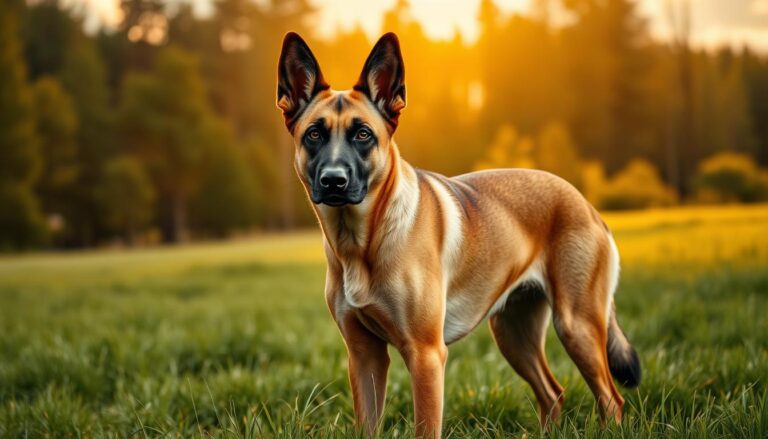Introduction
Choosing a dog is a big decision, especially if you live in an apartment. While some dogs require a lot of space and exercise, others are perfectly content in a smaller living space. When it comes to apartment living, choosing the right breed can make all the difference. In this article, we will discuss the top 10 dog breeds for apartment living, as well as training, exercise, grooming, and health considerations for apartment living dogs.
Table of Contents
Factors to Consider When Choosing a Dog Breeds for Apartment Living
When choosing a dog for apartment living, there are several factors to consider:
- Size: Generally, smaller dogs are better suited for apartments, as they require less space to move around. However, some larger breeds can adapt well to apartment living if they are given enough exercise.
- Energy level: Dogs with lower energy levels tend to do better in apartments, as they don’t require as much exercise and can be more relaxed in a smaller space.
- Noise level: Some breeds are more prone to barking and howling than others, which can be a problem in an apartment building where noise can be a concern.
- Training: Dogs that are easy to train and have good manners tend to do better in apartments, as they can be taught to be quiet and well-behaved in a smaller space.
- Grooming: Dogs that require a lot of grooming may not be well-suited for apartment living, as space can be limited and grooming can be messy.
Top 10 Dog Breeds for Apartment Living
- French Bulldog: These small dogs are known for their friendly personalities and love of cuddling. They don’t require a lot of exercises, making them great for apartment living.
- Cavalier King Charles Spaniel: These dogs are gentle, affectionate, and adaptable to different living situations. They don’t require a lot of exercises but do enjoy regular walks and playtime.
- Pug: Pugs are known for their wrinkly faces and laid-back personalities. They are low-energy dogs that enjoy lounging and cuddling with their owners.
- Shih Tzu: These small dogs are known for their loyalty, affection, and playful personalities. They are adaptable to different living situations, including apartments, and don’t require a lot of exercises.
- Chihuahua: These tiny dogs are perfect for apartment living, as they don’t require much space or exercise. They are loyal and affectionate with their owners but can be wary of strangers.
- Bichon Frise: These small dogs are friendly, affectionate, and playful. They don’t require a lot of exercise, but do enjoy regular walks and playtime.
- Boston Terrier: These dogs are known for their intelligence, friendliness, and adaptability. They don’t require a lot of exercise, but do enjoy regular walks and playtime.
- Yorkshire Terrier: These small dogs are known for their loyalty and affection towards their owners. They are adaptable to different living situations, including apartments, and don’t require a lot of exercise.
- Pomeranian: These tiny dogs are full of energy and love to play. They are great for apartment living as they don’t require a lot of space, but do need regular exercise and playtime.
- Dachshund: These dogs are known for their lively personalities and love of play. They are adaptable to different living situations, including apartments, and don’t require a lot of exercise, but do enjoy regular walks and playtime.
Training Tips for Apartment Living Dogs
When training an apartment living dog, it’s important to focus on positive reinforcement and consistency. Here are some tips:
- Start training early: Begin training your dog as soon as possible, even if they are a puppy. Consistency is key.
- Use positive reinforcement: Reward your dog with treats and praise when they exhibit good behavior.
- Set boundaries: Establish rules and boundaries early on and stick to them. This will help your dog understand what is expected of them.
- Socialize your dog: Expose your dog to different people and situations to help them become well-rounded and comfortable in different settings.
- Be patient: Training takes time and patience. Don’t get frustrated if your dog doesn’t pick up on things right away.
Exercise Tips for Apartment Living Dogs
Just because you live in an apartment doesn’t mean your dog can’t get enough exercise. Here are some tips for exercising your apartment living dog:
- Take your dog for daily walks: Even if it’s just a short walk around the block, getting outside and moving around is important for your dog’s health and well-being.
- Play indoor games: Games like fetch and hide-and-seek can be played inside and provide mental and physical stimulation for your dog.
- Use puzzle toys: Puzzle toys can keep your dog entertained and mentally stimulated while you’re away.
- Consider doggy daycare or dog parks: If your dog is social and enjoys playing with other dogs, consider taking them to a doggy daycare or dog park for some exercise and socialization.
Grooming Tips for Apartment Living Dogs
Keeping your apartment living dog groomed is important for their health and hygiene. Here are some grooming tips:
- Brush your dog regularly: Regular brushing can help keep your dog’s coat healthy and shiny.
- Bathe your dog as needed: Depending on your dog’s coat type, you may need to bathe them more or less frequently.
- Trim your dog’s nails: Keeping your dog’s nails trimmed can prevent them from getting too long and causing discomfort.
- Clean your dog’s ears: Regular ear cleaning can prevent ear infections.
- Brush your dog’s teeth: Regular teeth brushing can prevent dental problems.
Health Considerations for Apartment Living Dogs
While apartment living dogs can be healthy and happy, there are some health considerations to keep in mind. Here are a few:
- Obesity: Apartment living dogs may be at a higher risk for obesity due to their limited space and exercise opportunities. Be sure to monitor your dog’s weight and adjust their diet and exercise routine as needed.
- Anxiety: Dogs living in apartments may be more prone to anxiety due to the limited space and lack of outdoor access. Providing your dog with plenty of mental and physical stimulation can help alleviate anxiety.
- Temperature control: Be sure to keep your apartment at a comfortable temperature for your dog, especially during extreme weather conditions.
- Vaccinations and regular check-ups: Regular veterinary check-ups and vaccinations are important for all dogs, including apartment living dogs.
Conclusion
Choosing the right dog for apartment living can be a challenge, but with careful consideration and research, it is possible to find the perfect companion. From the laid-back French Bulldog to the energetic Pomeranian, there are many breeds that can thrive in apartment living situations. When choosing a dog, consider their size, exercise needs, and temperament, and be sure to provide them with plenty of love, attention, and care.
FAQs
Can large dogs live in apartments?
It’s possible for larger dogs to live in apartments, but it’s important to consider their exercise needs and make sure they have enough space to move around comfortably.
Do apartment living dogs need less exercise?
It depends on the breed and individual dog, but in general, apartment living dogs may need less exercise than dogs with large yards to roam.
Are there any dog breeds that are not suitable for apartment living?
Yes, some dog breeds may not do well in apartments due to their exercise and space needs. For example, a high-energy Border Collie may not be the best choice for apartment living.
Can apartment living dogs be trained to use a litter box?
Yes, some small breeds can be trained to use a litter box, but it’s important to start training early and be consistent.
Should I get a puppy or an adult dog for apartment living?
Either option can work, but it’s important to consider the individual dog’s temperament and exercise needs. Puppies may require more training and attention, while adult dogs may already be trained and have a more predictable personality.
Can apartment living dogs be left alone for long periods of time?
It’s not ideal for any dog to be left alone for long periods of time, but some breeds may be more tolerant of solitude than others.
How often should I groom my apartment living dog?
The frequency with which you should groom your apartment living dog will depend on several factors, such as the type of coat your dog has, the length of their fur, and how much they shed. In general, most dogs benefit from regular grooming sessions to keep their coats and skin healthy and free of mats and tangles.
Here are some general guidelines for grooming frequency for apartment living dogs:
Brushing:
Short-haired breeds: Once a week
Medium to long-haired breeds: Two to three times a week
Dogs with curly or wiry coats: Daily
Bathing:
Dogs should be bathed every 4-6 weeks or as needed. Too much bathing can strip the coat of its natural oils and cause dry skin.
Nail trimming:
Once a month or as needed. If you hear your dog’s nails clicking on the floor, it’s time to trim them.
Ear cleaning:
Check your dog’s ears once a week for signs of infection, and clean them as needed.
Teeth brushing:
Ideally, dogs should have their teeth brushed daily to prevent dental issues. At a minimum, aim for two to three times a week.
Are there any health concerns specific to apartment living dogs?
Common health concerns for apartment living dogs: obesity, anxiety, respiratory issues, and lack of socialization.
How can I keep my apartment clean with a dog?
Keeping your apartment clean with a dog can be challenging, but there are several things you can do to maintain a tidy living space. Here are some tips:
Regular grooming: Regular grooming, including brushing and bathing, can help reduce shedding and keep your dog’s coat clean and healthy.
Vacuum and mop frequently: Vacuum and mop your floors regularly to pick up dog hair and dirt. Consider using a pet-specific vacuum cleaner that is designed to pick up pet hair.
Use pet-friendly cleaning products: Avoid using harsh chemicals that can be harmful to your dog. Instead, use pet-friendly cleaning products that are safe for both your dog and your home.
Use washable covers: Use washable covers for your furniture and bedding to protect them from pet hair and dirt.
Keep toys and treats organized: Keep your dog’s toys and treats organized in a designated area to prevent clutter.
Wipe your dog’s paws: Wipe your dog’s paws with a damp cloth or pet wipe when they come inside to prevent dirt and mud from being tracked through your home.
By following these tips and establishing a regular cleaning routine, you can keep your apartment clean and tidy while still enjoying the company of your furry friend.
What are some tips for training an apartment living dog?
- Establish a routine: Establish a consistent routine for feeding, exercise, and potty breaks to help your dog feel secure and reduce anxiety.
- Use positive reinforcement: Reward your dog with treats, praise, and playtime for good behavior to encourage them to repeat it.
- Socialize your dog: Expose your dog to a variety of people, animals, and environments to help them develop good social skills and prevent fear and aggression.
- Be patient: Training takes time and consistency, so be patient and don’t expect instant results.
- Teach basic commands: Teach your dog basic commands like “sit,” “stay,” and “come” to help them stay safe and well-behaved.
- Use crate training: Crate training can help your dog feel safe and secure while also preventing destructive behavior when you’re not home.
Please check out other articles as well on this website
The Most Popular Hypoallergenic Dog Breeds 2023
Australian Cattle Dogs: A Comprehensive Guide 2023
The Pitbull Dog: A Comprehensive Guide
The Essential Guide to Newfoundland Dogs 2023
References
- American Kennel Club (AKC) – https://www.akc.org/
- The Kennel Club (UK) – https://www.thekennelclub.org.uk/
- Canadian Kennel Club (CKC) – https://www.ckc.ca/
- Federation Cynologique Internationale (FCI) – https://www.fci.be/en/
- Australian National Kennel Council (ANKC) – https://www.ankc.org.au/
- New Zealand Kennel Club (NZKC) – https://www.nzkc.org.nz/
- United Kennel Club (UKC) – https://www.ukcdogs.com/
- Japan Kennel Club (JKC) – https://www.jkc.or.jp/english/
- China Kennel Union (CKU) – http://www.cku.org.cn/english/
- World Canine Organization (WCO) – https://www.worlddogshow2022.com/
Thanks.








[…] The Top 10 Dog Breeds for Apartment Living 2023 […]
[…] The Top 10 Dog Breeds for Apartment Living 2023 […]
[…] The Top 10 Dog Breeds for Apartment Living 2023 […]
[…] Apartment Living […]
[…] they weigh 11 to 20 pounds and stand 12 to 14 inches tall. Their size fits well in small living spaces like apartments. This makes them a great choice for many […]
[…] cats can adapt well to apartment living as long as they are provided with plenty of attention, exercise, and stimulation to prevent boredom […]